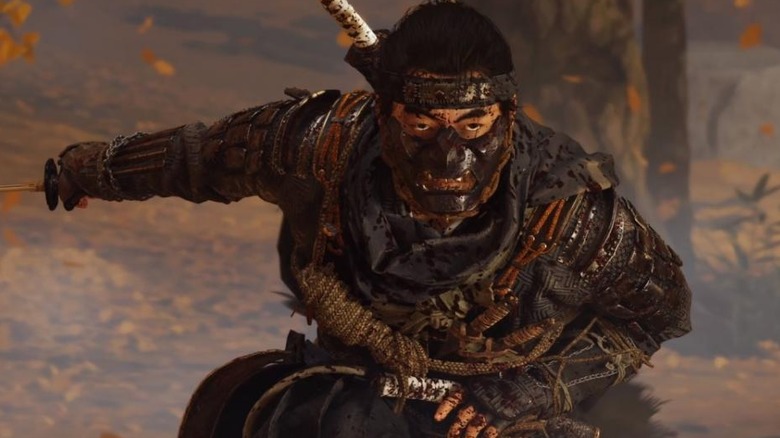Ghost Of Tsushima Is Causing A Bit Of An Uproar
After a few years of anticipation and a few delays, Ghost of Tsushima finally arrived in stores at the end of last week. The game has been lauded by critics for its acting, visuals, and combat system. However, the story of the game has received a bit of flak for feeling a little bit aimless in certain sections, particularly where side mission are concerned.
Despite the fact that some people have taken issue with the storytelling, Ghost of Tsushima has also been praised for its attempts at historical accuracy. Some people have even taken to basically calling it a samurai version of Assassin's Creed. However, this has proven to be something of a double-edged sword (pun entirely unintended). In striving for historical accuracy, Ghost of Tsushima has stirred up a large amount of controversy amongst gamers in China. Specifically, a debate has arisen concerning the portrayal of the Mongolian invaders in the game.
According to an article from the South China Morning Post, Ghost of Tsushima has sparked a debate among gamers regarding the rights and wrongs of a very difficult time in Chinese history. As much of the game takes place during a Mongolian invasion of Japan, gamers have taken to arguing over the subject of Chinese nationalism.
As mentioned by SCMP, debates rage to this day whether or not the Mongolians who once occupied China should be considered Chinese citizens. There is also a great deal of long-standing resentment towards Japan due to the conflicts between China and Japan during World War 2. In other words, Ghost of Tsushima, by including both, has become a hotbed of political discourse.
Just from taking a glance at some of the comments on China's social media sites, it appears that the debates quickly became ugly. There have been racial slurs hurled at the Japanese characters of Ghost of Tsushima. This is particularly true of the protagonist, who cuts his way through Mongolian soldiers over the course of the game.
One commenter quoted by the South China Morning Post was put off by the fact that the game shows Chinese people being killed by a Japanese character. They wrote, "At the end of the day, this is a game where Japanese people are killing Chinese people. The Mongols are one of the nomadic peoples of northern China. Just like the Han Chinese, they are Chinese people. Foreign players can play if they like, but Chinese people shouldn't join in the fun."
Others have stood in stark opposition to this line of thinking. One user in particular compared the events of the game to other historic invasions, writing, "The Japanese invasion of China was a war of aggression, and so was the Mongol invasion of Japan. I personally think that our hatred should go against any acts of aggression rather than the Japanese people."
It's unclear how this debate will play out, but it wouldn't be the first time a game has caused an uproar in China. After all, even a cutesy title like Animal Crossing: New Horizons was banned in China after gamers began using it to express anti-government sentiments.
This isn't the first time that Ghost of Tsushima has ruffled some feathers, either. In fact, there have been issues in the past where gamers have called the game's accuracy into question. Some gamers have expressed concerns that the game's Japanese may be slightly off. When the game's menu screen was revealed a few months ago, eagle-eyed (and Japanese speaking) gamers took note that some of the words displayed on the screen was grammatically incorrect. It wasn't out and out wrong or inaccurate, but it was rather, as one gamer described it, "off." As this person mentioned at the time, though, the game wasn't out yet and there was a hope that this was just "an isolated thing" in an otherwise accurate game. However, it didn't give some people a great feeling to see that the menu screen — the first thing that most gamers will see of the game in action — wasn't entirely on the up and up in terms of accuracy.
Since release, it has been reported by Kotaku that Japanese audiences in particular are warmly receiving the game. Japanese gaming magazine Famitsu gave Ghost of Tsushima a rare perfect score. Making this even more impressive is the fact that it is only the third Western game to receive that score from Famitsu, with the other two titles being The Elder Scrolls 5: Skyrim and Grand Theft Auto 5.
Ghost of Tsushima is currently available for PlayStation 4, with a PlayStation 5 port more than likely coming later this year.

